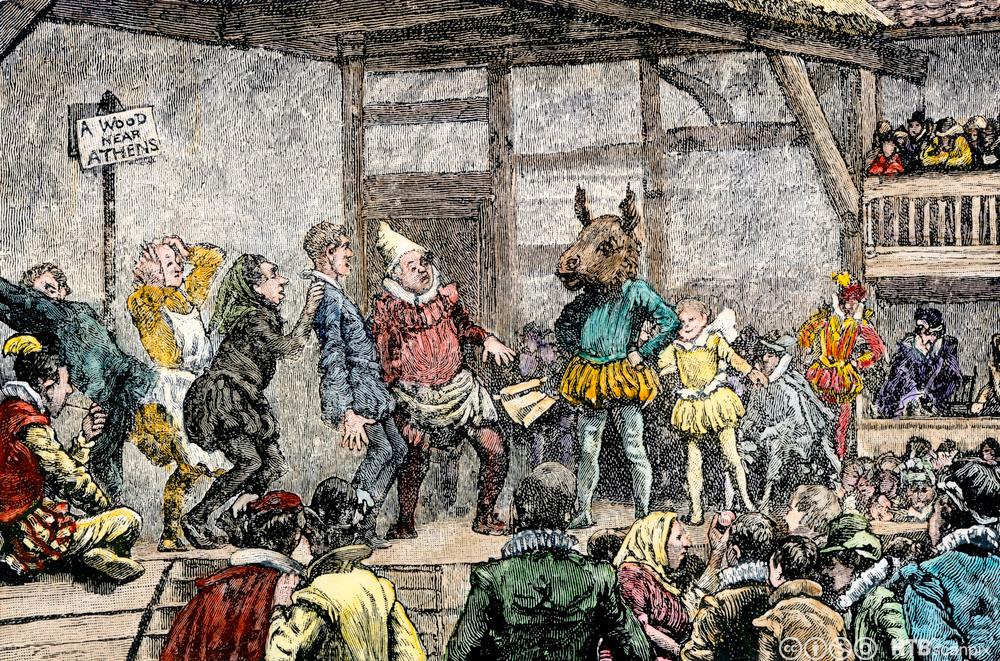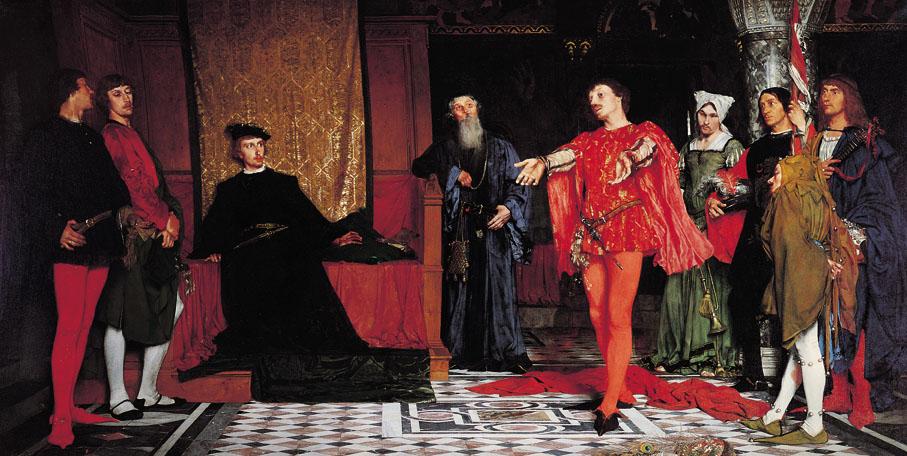The Language of Shakespeare

The Elizabethan Age (1558-1603) was a time of explosive creativity, during which some of the greatest wordsmiths of the English language – Christopher Marlowe, Edmund Spencer, Ben Johnsen, William Shakespeare – were creating some of the most famous works of written art we have today.
However, the language we associate with this period can often be difficult to read and understand for modern-day English speakers. The poets and playwrights of the time would play with words and invent new ones, and many of the words in Elizabethan literature are today strange or archaic.
The English language at the time was still going through a standardisation process. There were no dictionaries, and they had no standard spelling rules. They would simply spell words as they sounded. A good example is Shakespeare's own name: Sources from Shakespeare’s lifetime spell his last name in more than 80 different ways, ranging from 'Shappere' to 'Shaxberd'. Even Shakespeare himself wasn't consistent in the spelling of his own name.
Organised grammar texts would not appear until the 1700s, and grammar would also be inconsistent and different from what we see today. For example:
The verb do was dost in the present tense as in 'thou dost', and the verb does was doth as in 'he doth'. Like today, it was the subject that determined the form of the verb.
The pronouns would be thee, thou and ye instead of you. Also, thine and thy were used instead of your and yours. Thou was used for second person singular, while you was used for second person plural.
Abbreviations were different from what we would use today. For example, ‘tis instead of it’s and lock’d instead of locked.
You will find questions without the auxiliary verb to do. For example, 'What say you?' or 'Goes Fleance with you?'
We have to remember that the language we read in plays written during this time period was manipulated to fit the stage. The plays are dramatic works and were primarily written to entertain. Therefore, the characters' language would not always reflect how real people would speak.

The most famous representative of Elizabethan English is, of course, William Shakespeare. Shakespeare had a unique command of the English language. He played with words and rhythm and had a unique way of giving his language life and energy.
In many of his texts, he used what is called 'blank verse' which is a style of poetry that does not rhyme, but has a certain rhythmic pattern or meter. The use of a regular meter made it easier for the actors to memorise their lines, and it is pleasing to listen to.
The following passage is from Shakespeare's Macbeth. In this scene Macbeth is being overtaken by guilt and madness after he has committed murder. Read it aloud and see if you are able to feel the rhythm of the text.
Macbeth, Act II, Scene I
Is this a dagger which I see before me,
The handle toward my hand?
Come, let me clutch thee.
I have thee not and yet I see thee still.
Art thou not, fatal vision, sensible
To feeling as to sight? Or art thou but
A dagger of the mind, a false creation,
Proceeding from the heat-oppressed brain?
Shakespeare had a seemingly enormous vocabulary. He used more than 20 000 different words in his plays and poems, and it's also estimated that he created more than 1700 words. Many of these words were probably already part of the everyday Elizabethan language, but he was the first to put them down on paper.
He would frequently alter existing words and use them in new ways, for example by combining two words, adding prefixes or suffixes to words, or changing adjectives into verbs or verbs into nouns. In addition to individual words, there are also many common idioms and expressions that can be credited to Shakespeare, such as 'to break the ice', 'to be in a pickle', and 'to lie low'.
Shakespeare enriched the English language so much that it’s almost impossible to fully gauge his impact. Without him, the English vocabulary would have been very different. 400 years later, we are still using many of his words and expressions in our everyday speech and as a natural part of our language.
Here is a list of some very common words attributed to Shakespeare:
alligator (Romeo and Juliet, Act V, Scene I)
bedroom (A Midsummer Night's Dream, Act II, Scene II)
downstairs (Henry IV Part I, Act II, Scene IV)
fashionable (Troilus and Cressida, Act III, Scene III)
gossip (The Comedy of Errors, Act V, Scene I)
hurry (The Comedy of Errors, Act V, Scene I)
lonely (Coriolanus, Act IV, Scene I)
obscene (Love's Labour's Lost, Act I, Scene I)
questioning (As You Like It, Act V, Scene IV)
traditional (Richard III, Act III, Scene I)
worthless (The Two Gentlemen of Verona, Act IV, Scene II)
Related content
A set of activities where you will learn more about the characteristic language of Shakespeare and the Elizabethan Age.
In this podcast, you will learn more about the life and work of William Shakespeare.